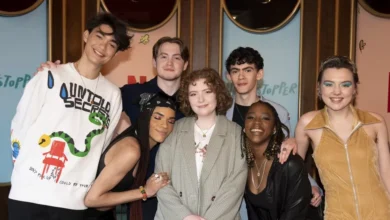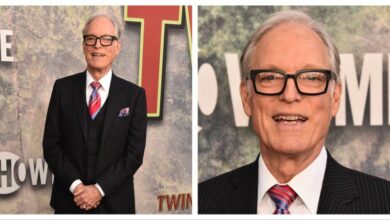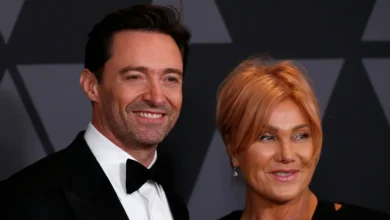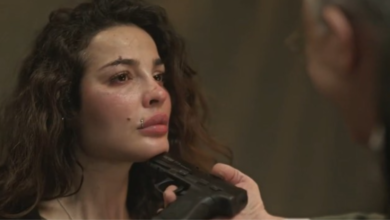How Jords became the first UK rap act on Motown records
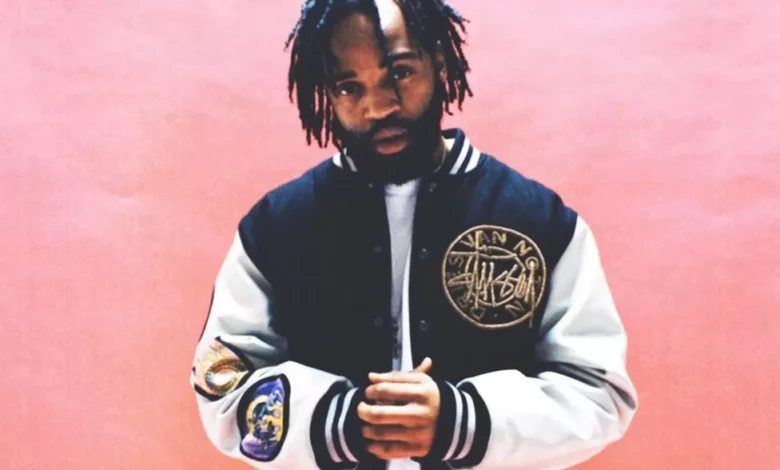
Jords has been making music ever since he bought a £1 microphone from Argos at the age of 13.
Back then, he was just trying to impress his older brother. “He’s my best friend and I wanted to copy him and be like him,” he says.
But from those humble beginnings, the Croydon-born teenager grew into one of the UK’s most engaging, musically curious rappers.
Over a series of mixtapes and EPs, he’s used music to navigate identity, love and loss.
Now aged 28, he’s releasing a debut album, Dirt In The Diamond, that involved “taking myself apart” and examining every atom of his existence: Jamaican ancestry, parental expectations, masculinity, success, and the stark contrast between street politics and religious devotion.
Five years in the making, it’s a thoughtful, powerful and bold exploration of identity and self-acceptance that transcends the norms of UK rap.
And when the historic US label Motown Records heard it, they wanted to be the ones to release it.
Motown approached the musician with an offer at last year’s Great Escape festival, and he accepted in a heartbeat.
“When I started rapping, when I was struggling and upcoming, I used to feel embarrassed telling my parents about it,” he explains, “But when it’s Motown? Everyone knows about Motown.
“And then you take in that this is the first UK rap album that’s coming out on Motown. The first one! It’s already immortal.”

Jords was born Jordan Edwards-Wilks and raised in Croydon to Jamaican parents.
He didn’t know it then but music was in his blood: his uncle is the Grammy Award-winning songwriter Gordon Chambers, who wrote Brownstone’s 1990s hit If You Love Me; and his dad was a singer in 80s band The Jazz Defektors, who toured with Sade and appeared with David Bowie in Absolute Beginners.
“I found out by accident, because we were in Asda and these two guys just came up and went, ‘Oh my gosh, you’re Barrington from the Jazz Defektors’,” he laughs.
“I was like eight or nine and they just started fan-boying over my dad. I remember looking over at him and thinking, ‘Who are you?'”
Like most kids, however, inspiration came from his peers, not his parents.
Jords grew up in the first wave of grime, watching local acts like Krept & Konan hit the big time. He copied their style on his first recordings, using the alias Vicious Kid, and sharing MP3s around his neighbourhood via Bluetooth.
After self-releasing the soulful, eclectic mixtape Means To An Ends in 2016, he signed to Universal for 2020’s Almost An Adult.
That record was a coming-of-age tale that pivoted around the loss of his grandmother, and saw Jords finesse his layered, melodic flow over a signature blend of jazzy R&B and London street sounds.
But after releasing the Black Lives Matter anthem Black & Ready in June 2020, he wasn’t sure how to progress.
Sessions for his debut album faltered as he grappled with the weight of expectation from his fans, his label and his peers.
“Then in December 2021, I just turned off both my phones and went to the studio for a month. I was fed up with having so much on my shoulders, and I had to go away and find some peace.”
As his vision cleared, he realised that shaking off other people’s expectations, both musical and societal, had been a recurring theme.
“Even growing up, people would hear that I’m from Thornton Heath and the immediate reaction was [sharp intake of breath] ‘Ohhh, you’re the diamond in the rough’. Which insinuates that everything around you is rough. And I don’t believe that. I just don’t believe that,” he says.
“So I flipped it to dirt in the diamond. Everyone is a diamond but we all have these bits of dirt within us that, if we’re improving ourselves, we would try and work on.”
It gave him the title of the album, but also a motif: the trap of preconceptions, especially among black, working-class families.
“My list of achievements is longer than my list of regrets,” he raps on Rice & Ps. “But we still got to fight for respect… And I’mma fight to the death.“
This article contains content provided by Google YouTube. We ask for your permission before anything is loaded, as they may be using cookies and other technologies. You may want to read Google’s cookie policy, external and privacy policy, external before accepting. To view this content choose ‘accept and continue’.
The BBC is not responsible for the content of external sites. YouTube content may contain adverts.
It’s a topic he interrogates further in a short film accompanying the album. A collaboration with British-Nigerian director Renee Osubu, it takes place at a funeral and the subsequent “nine nights” wake for a young black man in 1970s London.
Shot in beautiful cinnamon and ochre tones, it’s deliberately inspired by Steve McQueen’s Small Axe films and, like them, juxtaposes scenes of grief and celebration with a focus on black British expression.
“I love portraying it in the 70s because firstly, I got all my friends to dress up, so that was really cool,” says Jords. “And secondly, it’s really poignant to show that the cycle [of poverty and loss] continues.”
It’s a topic he’s addressed before, not just in his music, but also through Pickni Uniforms, a charity he co-founded, which gives free school uniforms to children from low-income families.
He says there are “systemic” problems that perpetuate poverty in the UK.
“I don’t understand, for example, why petrol prices are higher than they’ve ever been but petrol companies are making more profit than they ever have,” he says.
“When things like that are in place, of course the people at the lower end of the economic scale are going to see the worst of it, and unfortunately, they tend to be ethnic minorities.
“But I also believe that you make the change that you want to see. So I’d rather try and provide an infrastructure – maybe be like a Saturday school where we could bring kids in and teach them about black history.”
There’s an urgency to the early tracks on Dirt In The Diamond, as Jords wrestles with those questions of identity and lineage and deprivation.
But, just like he did in real life, the album steps back and adjusts its perspective on a ruminative track called iPray.
Over a gentle acoustic guitar and a shuffling drum beat, he raps about “heading to the mountains” to “realign”, while Wretch 32 adds a verse about putting faith and family over money and his career.
For Jords, it was a full-circle moment. Wretch’s dextrous flow influenced his own style; and recording with the star marked the moment the album finally came together.
“To be honest, we spent about two hours on a song and about five hours in conversation,” he says. “It was like Simba talking to Mufasa.”
With the baton passed, he found the courage to experiment more than ever.
Across Dirt In The Diamond, Jords stretches his musical muscles, incorporating sensuous dancehall and reggaeton grooves into songs like Stay Close and MoBay, and amalgamating two schools of UK rap on the strident Drill Vs Grime.
“I’m a real music nerd,” he laughs. “I watch documentaries upon documentaries. When I went to college, we did two modules – one was on Pink Floyd and the other was on Kurt Cobain and the rise of grunge.
“I’ve always enjoyed every style of music and, whenever I enjoy something, I really want to have my own interpretation of it.”
It’s that sort of musical curiosity that puts Jords in the lineage of Motown legends like Marvin Gaye and Stevie Wonder, who formed new frontiers of soul and social commentary in the 1970s.
Nonetheless, Jords can’t quite wrap his head around the fact that they’re all part of the same, storied catalogue.
“It’s kind of weird accepting that this is a real thing, having your album as part of that legacy.
“I can’t even take it serious. Michael Jackson, Marvin Gaye, Diana Ross… and Jords? Come on!”

